{ A full listing of books can be found at www.ryerson.ca/mgroup/murray.html }
Excerpt from Michelangelo Red Antonioni Blue (Berkeley: University of California Press, 2011):
Freud says the unheimlich, the uncanny, can be understood well by beginning with Jentsch’s surmise regarding instances of doubt as to “whether an apparently animate being is really alive; or conversely, whether a lifeless object might not be in fact animate.” And Pascal Bonitzer suggests, “The more familiar or banal an object or act is, the greater its capacity to inspire terror.” David Locke comes in from steaming in the desert, his convictions evaporated, his intentions leached away, his bravado desalinated, his vision strained, his voice cracked, his memory dissipated: consider whether an apparently animated being is really alive. Or David Robertson laid flat upon his bed, eyes open and green, the wind ruffling his thin hair, his wallet and daybook open for the checking, a man who offers concrete objects, not words, with thousands of dollars in gun orders waiting in a check box at the Munich airport: whether a lifeless object might not be in fact animate. (230)
Review excerpt:
Pomerance wants us to get closer to the screen, physically as well as metaphysically.
As taken as he is by the images on the screen in front of him, Pomerance is also enraptured by the sound that envelops us in a darkened movie house. Invoking the French critic and theorist Michel Chion, Pomerance introduces the acousmatic moment, which stems from a “sound that is heard without its cause or source being seen.” (p. 112) One such moment occurs in On the Beach, an early Cold War horror story that turns the blood to ice because of the silent, barren world it portrays so vividly. The silence is broken by the mysterious tapping of a cord from a window blind wrapped around a partly filled Coke bottle that rests intermittently on an open telegraph key, “which begins as an acousmetre that by the end of the sequence is brutally rationalized as a simple diagetic prop.” (p. 113) What is also broken is the mystery of the sound that represents some of the last survivors of a nuclear war, which is briefly the driving force of the submarine crew. When the mystery is solved – when a common symbol of a once-vibrant society of smiling consumers is found to be the cause of a sound the submariners thought was a signal of life – the action grinds to a momentary halt and the apocalypse becomes knowingly, brutally real.
Pomerance’s joy in celebrating the cinematic moment, whether visual or sonic, does not obscure his knack for sophisticated film analysis. He lavishes attention on three films: Fritz Lang’s M (1931), 23 pages; George Cukor’s Dinner at Eight (1933), 16 pages, and Hitchcock’s North by Northwest (1959), 23 pages. In each instance, Pomerance launches intersecting philosophical, sociological, cinematic and political discussions that broaden our understanding of these classics. With Pomerance at the helm, we can always learn something new about even the most familiar films. He devotes an entire chapter to Lang’s crime drama, pointing out that the smoke that hovers above the puzzled, frazzled police and that surrounds the criminals meeting to discuss the difficulties the killer, Hans Beckert (Peter Lorre) has brought because the police are focusing on them – is the same smoke. It unifies these two disparate elements of Berlin society, a society bursting with the elements of the next great war: “…the state in its immaculate purity hears the harmonic music of a profound inner brutality.” (p. 106) (John Fidler, Senses of Cinema)
*
Excerpt from Edith Valmaine (Ottawa: Oberon Press, 2010):
He had long believed of himself, as others believed of him, that he had failed to learn anything much about the mechanism of love–or certainly sex; and yet he recognized this, too, as a cliché of his generation. Like others who had been born in the Age of Advertising, or whatever one wished to call this miserable time, he knew sex as a sign but not as an act. When he had run out the tub, and imbued his shoulders with some peppermint cream, his one extravagance, and walked around long enough for the air to dry him, he took from beneath his pillow a little notebook and on the first blank page began to write, “My dear—“: but how, in fact, should he address her? ‘Madame Valmaine’ seemed formal, even forward, adn ‘Edith’ was as impossible as saying, to a cipher from a foggy bridge, “Tu.” So he put, “My friend. Take heart and do not be shocked that one makes bold to communicate with you who has been nothing but a flicker of shadow in your perspective. You must have many admirers you do not know about, so perhaps I am one of them and nothing more. Your husband will come to appreciate you no matter what. We men are all buffoons. And if only you have the toleration, we—” Here he broke off. We what? We will change? And why, after all, we? Who was he, even though he felt certain he understood Valmaine down tot he blood, to be including himself? If writing to her had seemed imperative a few moments ago, now it was a joke; and tearing out the page, crumpling it, he stuffed it into a drawer with real contempt. Yet he kept whispering to himself, “My dear Madame,” until he was numb with the indistinct thought of her. He took the crumpled paper from the drawer and buried it in one of his pockets. (33-4)
*
Excerpt from The Horse Who Drank the Sky (New Brunswick NJ: Rutgers University Press, 2008):
The actor onscreen does not only embody a character and bring the quickness of the living image to the line of narrative. She also has the power to mobilize and concentrate an expression of self, since she is entirely co-present with her character. If James Stewart could muse that the beauty of cinema was its ability to capture and render “pieces of time,” it is also true, and provocatively so, that the actor’s work freezes and offers not just narrative time but also the time of the actor’s life. A tiny moment of screen performance, sculpted as it is by a sensitive, thinking worker out of the exigency of feeling, out of other actors’ work all around, and out of the pressing but also relieving pulse of time, can lever the structure of an entire film, can balance or unbalance it, turn it, illuminate a thousand other moments, angles, objects, postures, and pretenses in order suddenly to offer us a whole new understanding of the story and of our experience. The actor must use her sense of space both topographical and narratological, and also her experience, which amounts to saying that an instant of performance is biographical and biological, a summation of every previous moment in an actor’s life. (203-4)
Review excerpt:
Pomerance wants us to get closer to the screen, physically as well as metaphysically.
As taken as he is by the images on the screen in front of him, Pomerance is also enraptured by the sound that envelops us in a darkened movie house. Invoking the French critic and theorist Michel Chion, Pomerance introduces the acousmatic moment, which stems from a “sound that is heard without its cause or source being seen.” (p. 112) One such moment occurs in On the Beach, an early Cold War horror story that turns the blood to ice because of the silent, barren world it portrays so vividly. The silence is broken by the mysterious tapping of a cord from a window blind wrapped around a partly filled Coke bottle that rests intermittently on an open telegraph key, “which begins as an acousmetre that by the end of the sequence is brutally rationalized as a simple diagetic prop.” (p. 113) What is also broken is the mystery of the sound that represents some of the last survivors of a nuclear war, which is briefly the driving force of the submarine crew. When the mystery is solved – when a common symbol of a once-vibrant society of smiling consumers is found to be the cause of a sound the submariners thought was a signal of life – the action grinds to a momentary halt and the apocalypse becomes knowingly, brutally real.
Pomerance’s joy in celebrating the cinematic moment, whether visual or sonic, does not obscure his knack for sophisticated film analysis. He lavishes attention on three films: Fritz Lang’s M (1931), 23 pages; George Cukor’s Dinner at Eight (1933), 16 pages, and Hitchcock’s North by Northwest (1959), 23 pages. In each instance, Pomerance launches intersecting philosophical, sociological, cinematic and political discussions that broaden our understanding of these classics. With Pomerance at the helm, we can always learn something new about even the most familiar films. He devotes an entire chapter to Lang’s crime drama, pointing out that the smoke that hovers above the puzzled, frazzled police and that surrounds the criminals meeting to discuss the difficulties the killer, Hans Beckert (Peter Lorre) has brought because the police are focusing on them – is the same smoke. It unifies these two disparate elements of Berlin society, a society bursting with the elements of the next great war: “…the state in its immaculate purity hears the harmonic music of a profound inner brutality.” (p. 106) (John Fidler, Senses of Cinema)
*
Excerpt from Johnny Depp Starts Here (New Brunswick NJ: Rutgers University Press, 2006),
on Rand Ravich’s The Astronaut’s Wife:
For Ravich, the alien form is the quintessence of space, which is to say, a complete absence of definition. In order to have form, it emplaces itself in Armacost/Depp, in effect becoming the astronaut/actor. But the strategy of the mise-en-scène is to have us accompany the alien on its journey of definition, so that we, too, etner Johnny and reside within him for the duration of the film. Place has heat, while space does not; and just as the navy frogmen could feel the “chill of space” inside the Apollo 13 capsule when they popped its hatch, Jillian Armacost senses the “warmth” of the newly definted alien presence inside her “husband,” even at the same time as she senses, too, a curious social chill (produced by the fact that if the alien has devoured Spencer’s memory and knows Jillian, still Jillian does not know the alien).
It has, of course, become entirely conventional, from at least a commercial journalistic point of view, to think of Johnny Depp as something of an alien himself. Hilary De Vries passes along the story that his forearms are covered with scars from self-inflicted knife wounds. Jamie Diamond reports tht he asks a restaurant waitress to give him “everything. Can you satisfy my every desire?” and that he doesn’t “feel part of anything.” To Chris Heath of Details magazine he reported, “I can remember being so happy [as a youth] that I made noises.” Flying to Vancouver to work on “21 Jump Street,” he suddenly announced, for no particular reason at all, “I fuck animals.” Yet it is in an entirely less naughty, and thus less intrinsically orderly, sense that Ravich’s film alienates Depp. For here he is no mere embodiment of our secret desires, our repressions, conveniently materialized for the superior voice to denigrate and tame. He is suddenly, now, from the outside, an intruder, one who does not belong in any sense of what the word “belong” can mean on earth. He occupies place without permitting that he himself should be occupied in turn. (139)
Review:
Pomerance is the inimitable lyric poet of cinema scholars, bringing the imagination of a creative artist and the rigor of an exacting intellect to these masterly riffs on Depp’s complexities and conundrums. The protean actor could not have found a commentator more in tune with his mercurial career and elusive, mesmerizing self. (David Sterritt)
*
Excerpt from Savage Time (Ottawa: Oberon Press, 2005):
Ettie was as white as porcelain when he came in. She seized him by the sleeve, something she had never done. “Now dear–I think maybe you should have some oxygen.” As if trapped in a foxhole he gaped all round, reaching out in a dream darkness to block an alien horde. “What? What?” It was obvious she was trying to catch her breath, that he had walked in upon a disaster. Alabaster white, she leaned back against the sideboard and made clicking sounds with her tongue. “It’s Josephine, dear. She’s gone.” The words almost gagged her but she said them clearly. For his part, it took Doc some time to run through the long list of names he possessed–friends, dogs, patients, children–so that it was not at all swiftly that he calculated a Josephine. But then he caught the image of her, swimming and then approaching and staring from up close. Staring with huge glaucous eyes. “Utterly impossible,” he put on his scientific voice. “Beyond physics.” Ettie was in her bathrobe, a loose Japanese thing that exaggerated all of her movements somehow. She was shaking. Hew pewter hair that she always wore tightly wrapped was all down to her waist and brushed shiny so that she had become sculptural–he saw suddenly that her clay-coloured lips were beautiful. She was saying, “I’ve looked and looked, believe me. I’ve looked in teh filter holder–see, under the cap it’s a kind of tube affair, but she isn’t in there–and in the vegetation, and inside the castle, and behind Napoléon. She isn’t to be found.” This wa surely, he was now concluding, the most preposterous of preposterosities, that a fish could travel, that a fish could go on the road. “Fish don’t go. Isn’t anywhere for fish to go.” There wasn’t anything but to make a rigorous examination. He put on his glasses, with the little black band that hung at the nape of his neck, and bent over toe come very close to the aquarium glass. Napoléon was motionless behind the two remaining strands of Echinodorus bleheri, with the filtration bubbles streaming past him. There was no other fish, no image of a fish at all. The thought came, “There never was a Josephine. She was all in my imagination.” (78-9)
Review:
Savage Time is collection of stories by Murray Pomerance about the people – family, patients, and friends – linked, however loosely, to the emphysemic psychologist known simply as Doc Savage. While topically, the stories vary widely – the musings of a realtor and a decorator; a honeymoon and a riot; a vacation in Venice; extramarital liaisons imagined; extramarital liaisons committed – thematically, this is a collection about the tension endemic to existence in a world indifferent to human ambition and fancy.
For most, this tension means little more than some harmless, perhaps even healthy, longing. But for Doc’s crew, the friction manifests itself in full scale neuroses. From the selfabsorbed, hyperactive Trudy Kay to the selfentitled Olga, from the arrogant and epileptic Marlowe to the cerebral Cowrie, who lives a great deal of her life in her head, each is plagued by struggles that stem from the inability to cope with a reality that is cold and heedless of their wants. However, Pomerance saves his characters from becoming merely shadowy satellites in orbit around the Doc by allowing them the freedom to surprise.
Anomalous bubbles of selfawareness and insight (Olga, Marlowe) or actions that, prima facie, mystify (Cowrie having an affair that is not in her head, Trudy Kay sitting calmly through the death of a friend), lend these characters the uncanny veracity that is one of the greatest strengths of this work.
However, the Doc refuses to be concerned simply with upper class neuroses. “It is one thing for the world not to be what you want it to be . . . and something else entirely for the world to be what you can’t understand.” This failure to understand, this “bad fit” between a conceptual system in the world and its physical manifestation – migraines – is what Doc has devoted his semiretirement to.
Pomerance exploits the possibilities of a “bad fit” between the expectations of the reader and the density of his prose. His style produces, to great effect, a feeling of discomfort that pervades the work.
On the Lido sand was copious, but one was not enchanted with the sand. The sand called to mind – albeit dilute – the stench of Venice. One did not wish stenches with one’s sand. One wished purity, one wished an apotheoisis of texture, one wished for one’s childhood. The pain of this was in extinguishable, unbounded, a form of lust. Olga wished for her childhood, now and frequently, flicking her toes in the impudent sand. The sand said, “Empire. Antiquity” with quite a pronunciation – which was all very good but brutal and dry, and she wanted ssomething more than that, the ocean that came slowly rolling and toward which one could chacha. What were power and time, after all, in the absence of delight? (102)
Pomerance’s skill as a stylist is perhaps most in evidence during a passage in which perceptions are filtered through the onset of a migraine. The episode is superb, and at the end of the three pages (2326), the reader is left bewildered and frightened of some mysterious, yet, inevitable pain that is inextricably bound to her existence. I have chosen not to quote from the passage here because even a generous excerpt would break up the rhythm, shattering the effect.
Actually, natural breaks are scarce throughout this work. The long sentences, lack of paragraph breaks, the inclusion of quotations within block text recall the writing of Saramago. However, where Saramago’s work is paradoxically jaunty, and deceptively loose in its density, Pomerance’s prose can be so packed the effect is distressing. Perhaps it is fitting that this is actually a strength in this strange, yet moving, work. (Devon Shepherd in The Danforth Review)
*
Excerpt from An Eye for Hitchcock (New Brunswick NJ: Rutgers University Press, 2004):
A recurring theme in Vertigo is recurring themes. This is perhaps the ultimate treatment in film of the idea that an essence can be brought back, revivified, lifted out of one setting in time (or mise-en-scène) and reset in another. And that idea is the filmic idea par excellence. We are regaled with accounts of not only hauntings but also nostalgias, not only memories but also aspirations and hallucinations. Every fall leads to the hope of a fall, which is to say, a height. And if we imagine this Möbius space set in historical terms, we are speaking of a relation, or co-presence, of historical moments, of eras. (245)
Review:
In a groundbreaking article on North By Northwest, Raymond Bellour argued that the mechanism by which Thornhill is obliged to identify with Kaplan, a fiction created by the CIA, exposes in an exemplary way the mechanisms of seduction used by what was then known as ‘classical cinema.’ Pomerance turns this reading on its head by arguing that Thornhill, by becoming Kaplan, becomes authentic, beginning to give ‘a live performance that until this moment has been nothing but a hollow rehearsal and a game.’ The demonstration of this idea is compelling enough to remind us that Roberto Rossellini made yet another film that was released in 1959 with the same theme: General della Rovere, in which a no-good becomes a hero by being obliged to play one. A little sociology (Erving Goffman’s The Presentation of Self in Everyday Life, which also appeared in 1959, was one of the main sources of inspiration for this chapter) does indeed seem to go a long way in illuminating Hitchcock.
Each chapter has a different focus: The brief one on Spellbound offers fresh perspectives on Hitchcock and Freud; the discussion of Torn Curtain peels back the spy thriller façade to expose a study of hierarchy and rituals of interaction in academia; Marnie turns out to be a film about class, not hysteria; I Confess is illuminated by historical considerations concerning the conflict between Church and State in Quebec in 1953; and the chapter on Vertigo leaves social commentary behind for a difficult but rewarding investigation of vertigo and verticality, past and present, sight and sound (and their synesthetic exchange) in a film whose mysteries lie in another realm altogether.
Rereading individual chapters with the whole in mind is, of course, quite rewarding: The terrible moment when Roger and Eve discover that they are on top of the Monument, for example, exemplifies Pomerance’s definition of vertigo, developed at greater length in its own chapter, as the discovery that one is higher up than one thought – an experience that the spectator of Hitchcock’s cinema, where ideas of verticality are viscerally important, constantly risks encountering.
My favorite chapter is the one on Marnie, where Pomerance, a fan of Stanley Cavell, implicitly reinterprets the film as a variant on Cavell’s famous schema for comedies of remarriage without ever alluding to his predecessor, and in the process greatly improves on his performance as a Hitchcock exegete. The much-maligned Mark Rutland is rehabilitated as a class-bound sexual predator who drops his blinders enough to finally be a friend to Marnie; she in turn is revealed to be another character like Roger Thornhill, radically displaced in childhood and chasing after an ever receding, ever beckoning phantom.
In a final pirouette, Pomerance demonstrates that Marnie is not only a revolutionary at odds with a society dominated by men and money, but ‘an avenger from below the Mason-Dixon line, redeeming its losses by single-handedly and with the greatest of dignity pilfering the vaults of the great northern cities and businessmen.’ This surprising conclusion suggests another cinematic analogy, this time to a film made a decade later: John Cassavetes’ A Woman Under the Influence, whose feuding couple, as novelist Pierre Rottenberg commented in 1974 (Cahiers du cinéma 273), seem to be re-fighting the Civil War in their living-room.
Throughout An Eye for Hitchcock Pomerance demonstrates an understanding of people that is anything but clinical. He is at his most un-clinical whenever he is putting paid to stereotypical ideas about Hitchcock, as when he questions Evan Hunter’s testy piety about refusing to write the honeymoon rape scene in Marnie , which led to his dismissal. ‘I suspect Hunter’s middle-classness could not bear to write the officially-sanctioned husband as a rapist,’ Pomerance observes, ‘yet had no problem countenancing Bernice Edgar’s violation (since, unmarried to her attacker, she was fair game).’
The most important sentence in the book is an aside about the techniques used to make the spectator identify with little Marnie’s own interpretation (and not the cliché Freudian one) of her primal scene: ‘all of Hitch’s work is about sympathy.’ It is no accident that at this point Pomerance, a canny observer of the signals by which Hitchcock’s characters read and write one another, permits himself for the only time in the book to use the nickname ‘Hitch.’ (Bill Krohn in The MacGuffin)
*
Excerpt from Magia d’Amore: (Los Angeles: Sun & Moon Press, 1999)
Lady Flaminia has cut every excess rose to leave a perefect ring of roses in the Conservatory (especially designed as a cloistered garden with a springing fountain–from which you cannot drink–surrounded by a ring of roses) and now she is arranging her freshly cut roses in Imbroglio’s pantry in a crystal goblet. The morning sunlight is dripping down on her, a slight breeze is rippling the tamarisk fronds just outside the window, she’s got some golden clippers and has carefully selected the roses one by one and snipped their bases for length and pounded their new-cut bases with the handles of the golden clippers. Here and there she boldly fights off a low-springing leaf. Rose colors: There are pallid pink roses like corals, and those darkening by shades of pink until they are as deep as a cloud of sunset suspended in a cahtedral between the yawning panes of the cathedral’s colored glass. Now the morning sunlight is covering Lady Flaminia with her roses. She has made the paler roses shorter, the darker roses taller toward the center. And she’s moving on to an arrangement of pink carnations and lavender tulips, it’s pathetic with the pendulous thick green leaves of the tulips cascading over the lip of the vase. Harlequin is observing. Secretly. Nothing on earth gives him more pleasure than – – – – to watch Lady Flaminia – – – – arranging – – – – flowers – – – – shhhhh. The attar of the roses floats over him. Thinks Harlequin caught in fascination for the roses, “Now time has stopped.” (80-81)
Review:
These are not so much independent tales as episodes reimagining and spinning events in European history, literary and political, from 15th-century Venice to 19th-century France. Archetypal characters such as Columbine, Pierrot, Arlequin, Ardenzio, the Countess of Frangipane and Scaramouche are the players that enact Pomerance’s scathingly witty and mischievous scenes, lending their frantic marionette energy to each new situation. Columbine and Arlequin struggle to come to terms with their love for each other as weddings, love affairs and other intrigues occur in their peripheral vision. Their comically theatrical world is not without its violent moments; in one brief episode, a messenger is pushed from a bridge while searching for a cure for unstoppable laughter, while in another a servant uses the decapitated head of Henry VIII to prove to Arlequin that the king is dead. Thrilling tricks of language, such as sudden immersions into Middle English and lush oddities like “hemidemisemiquavers” keep the narrative on its toes, never entirely lucid but certainly never dull. The book’s irreverent leaping is both its strength and its weakness, aiming for coherent social commentary while maintaining a cacophonously poetic tone. The writer’s sensitivity is ubiquitous; quiet observations such as “A wind in the street is shuffling through the fading chestnut trees,” offer serene islands in the visionary and disorienting swirl and flux. (Publishers Weekly)
*
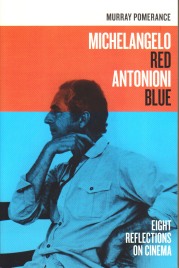
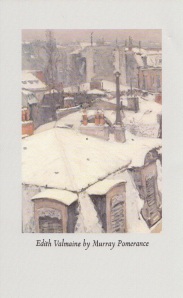


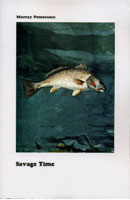
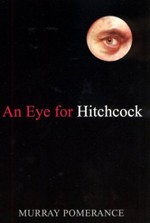
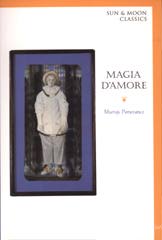
Leave a comment